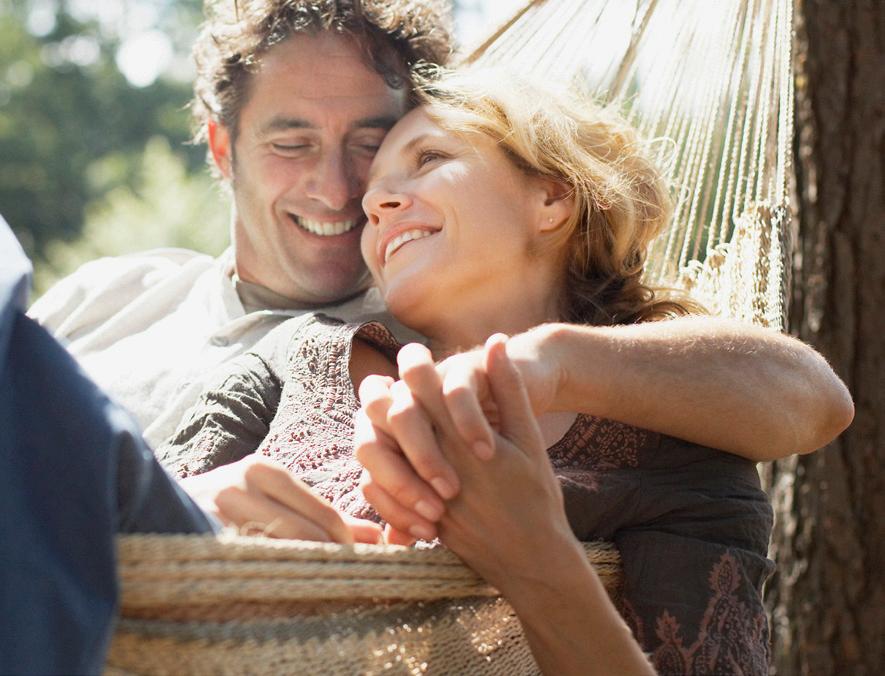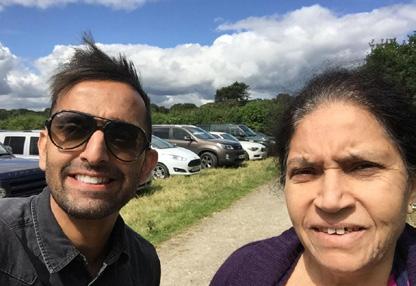
19 minute read
TALK TO YOUR GP
SUPPORT AND ADVICE
WHY EVERYONE NEEDS TO BE TALKING ABOUT breast cancer
TV DOCTOR AMIR KHAN HAS A VERY PERSONAL REASON FOR WANTING ALL HIS PATIENTS AND VIEWERS TO BE BREAST CANCER AWARE. HERE HE EXPLAINS WHY...
In October 2015 I got a call from my mum, Abida, while I was at work. She had gone for her routine mammogram and they had found a suspicious looking lesion, they wanted her to come back for an ultrasound-guided biopsy.
My immediate reaction was that it was likely to be nothing and they were just being over cautious so I tried to reassure her and went with her to the appointment. At the clinic, she was assigned a breast liaison nurse who translated everything for her – even though Mum can speak perfectly good English, Urdu is her first language. This took away some of her anxiety, but unfortunately the biopsy came back as cancer – a small undifferentiated lump in her right breast.
She’d had no symptoms and had felt perfectly well, and so it was a shock for the whole family. Further tests revealed the cancer had not yet spread to her lymph nodes and a mastectomy was suggested. The hospital was brilliant (as was my mum). She had the
LUCKY: Amir’s mum Abida, was diagnosed early with breast cancer
surgery in the morning and was home that night. At the next appointment, the oncologist told my mum it had been an aggressive type of breast cancer but they were confident it had all been removed. There was however a small chance that it could have seeded somewhere and, to reduce the chances of it recurring, she was offered chemotherapy. It was a difficult decision – the chemotherapy would only reduce the chances of it coming back by a tiny percentage. We discussed it as a family and decided against it.
Thankfully, Mum is still healthy and now goes for yearly mammograms.
I come from a family of women, I have six sisters and no brothers. People assume being the only boy means I am spoilt rotten. Sadly (for me) my mum is the ultimate feminist and made sure that when I was growing up I did my fair share of washing, mopping and vacuuming. But even with all these women around, we never talked about breasts or any form of cancer screening.
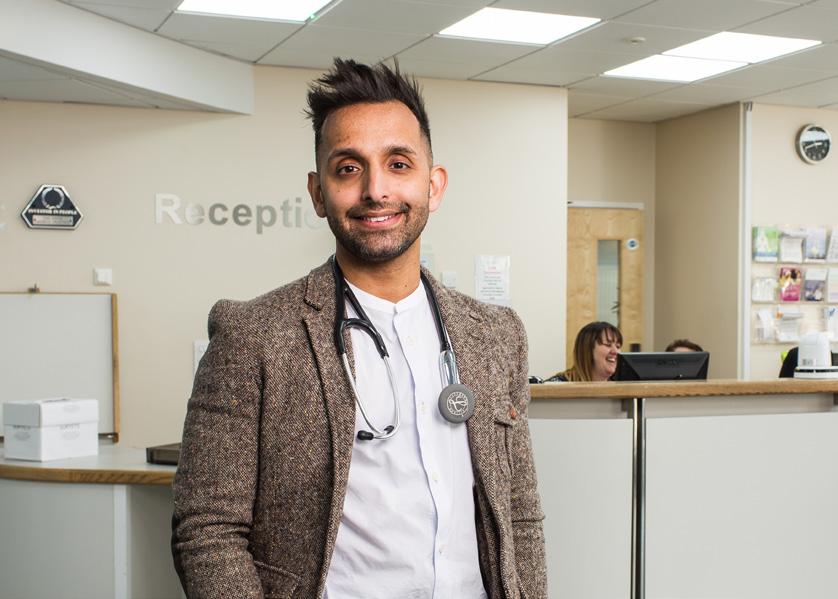
It’s a bit of a taboo subject in our South Asian community and after my mum was diagnosed, the elders in our community would come to visit but never mention the words ‘breast cancer’. They would ask how my mum was doing after her ‘illness’ or after her ‘surgery’. Even my own sisters would skirt around the subject.
I thought, if people in South Asian communities are too embarrassed to say ‘breast cancer’, how can we be sure they are aware of the symptoms and signs to look out for?
Studies show that South Asian women generally have lower screening rates than host country women. The evidence also shows that South Asian women have poorer knowledge of
cancer and cancer prevention and experience more barriers to screening. Cultural practices and assumptions influence understandings of cancer and prevention, emphasising the importance of host country cultures and healthcare systems.
And it gets worse. A systematic review of the evidence shows that in the UK, South Asian women have higher breast and cervical cancer mortality than the host population, worse cancer-related health outcomes (with the exception of some Indian groups) and are more likely to present with advanced disease. My mum was lucky. She has doctors in the family who are constantly telling her about the importance of cancer screening. She is also fluent in English and can drive, which means she can attend appointments without having to take a translator with her. I kept thinking of all the other mums out there from other cultures who were presenting late with cancers as a result of cultural barriers.
Since then I have worked with a team at the Yorkshire Cancer Research centre and the University of Bradford to better understand these cultural barriers so that we can try to overcome them. We spoke to South Asian women living in Bradford about their understanding of cancer screening services and cancer in general. Many believed their health to be in the lap of the gods, but others had their attitudes shaped by previous encounters with healthcare professionals and even their migration experience. There were other barriers too, including those around language, family commitments and ease of appointment access. It was also clear that cancer screening wasn’t being openly discussed in the communities we sampled.
This has to change. Many people much cleverer than myself are working at getting these communities better, more targeted access to screening. But, as a GP, I can do my bit. I can talk to my South Asian patients in their language about the importance of screening and try to allay their concerns. Being from their culture allows me to better understand some of their beliefs and openly talk about them without being dismissive.
When it comes to encouraging all of our patients to attend for cancer screening, every health care professional has a role to play.
Not every mum will be as lucky as mine was, but we can improve that by simply talking to our patients and making sure we have a better understanding of them.
QUESTIONS YOU SHOULD ASK YOUR GP about breast cancer
IF YOU SEE YOUR GP ABOUT BREAST SYMPTOMS THERE IS A GOOD CHANCE THEY WILL REFER YOU TO SEE A BREAST SPECIALIST. COMMON QUESTIONS TO ASK MIGHT BE:
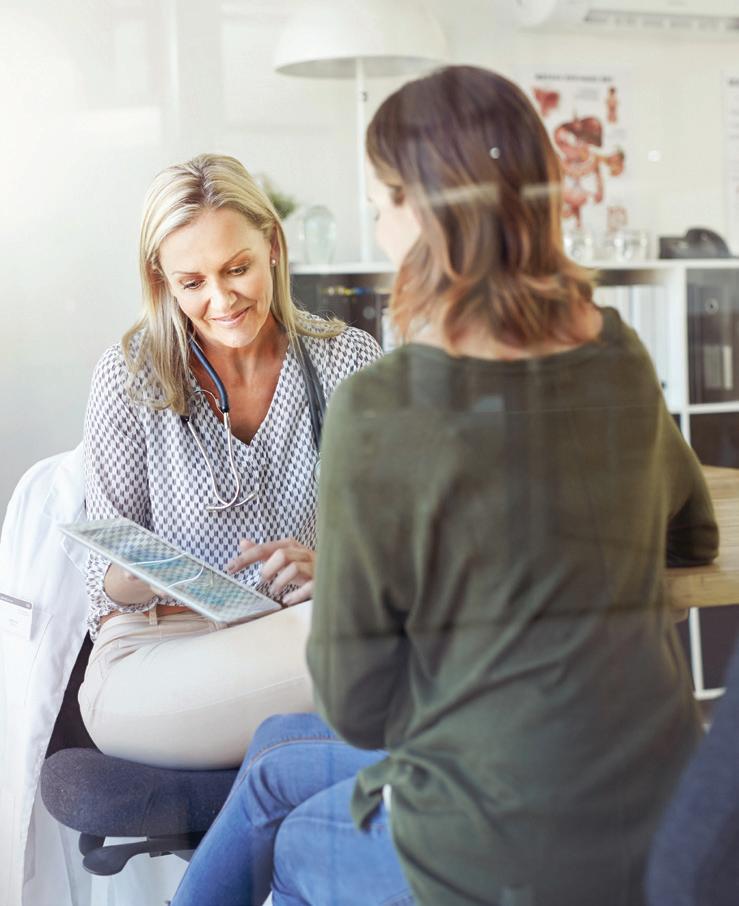
1 2 3
When am I likely to get my appointment?
Can I bring a family member with me – even with recent Covid guidelines?
What tests are they likely to do?
IF YOUR GP DOESN’T REFER YOU TO SEE A SPECIALIST, YOU MAY THINK OF ASKING:
1 2 3
Who do I contact if my symptoms change or get worse?
How long shall I give it for my symptoms to settle down?
Can you explain why I do not need further tests or a referral?
Riding the Wave

Consultant breast and oncoplastic surgeon and Future Dreams trustee, Joanna Franks (left), explains how The Wellington Hospital triumphed through the first Covid-19 wave, and why breast cancer patients should feel confident about receiving treatment safely, even in the face of a second lockdown. While March now seems a lifetime ago, as the country prepared itself for a then indefinite lockdown and the unknowns of a Covid-19 pandemic, UK NHS hospitals up and down the country turned their operating theatres into intensive care units. As a result, many breast cancer patients were being operated on in private hospitals, such as The Wellington, which was taken over by the NHS for this very purpose, with the capacity to see 40 to 50 NHS patients for surgery every week. With news headlines highlighting the knock-on effect of prioritising care for Covid-19 casualties over all other patients, Jo is keen to reassure all breast cancer patients and their friends and families that The Wellington has now established a number of new ways to look after them safely, minimising the risk of Covid-19 exposure.
How did The Wellington work with the NHS during the spring lockdown? In north London, NHS breast cancer patients from 10 different hospitals were put under one service. The good news for patients was that they were getting the expertise and input from all these incredible teams who were coming together to create a new plan for best practice. We successfully undertook almost 460 breast cancer operations throughout the height of the lockdown, managing a very safe and consistent pathway in a Covid-free environment.
Did you have any Covid outbreaks during the first lockdown? As a hospital, The Wellington was separated from any Covid infections. Patients were and still are thoroughly screened prior to a procedure, including pre-op assessments, Covid swabbing and periods of isolation. Staff are also regularly tested and we have managed to avoid any Covid-related complications in our breast cancer patients. We created a safe environment where patients were able to receive the best possible care at the right time. The Wellington has really triumphed over Covid and has used the time to showcase what they can do.
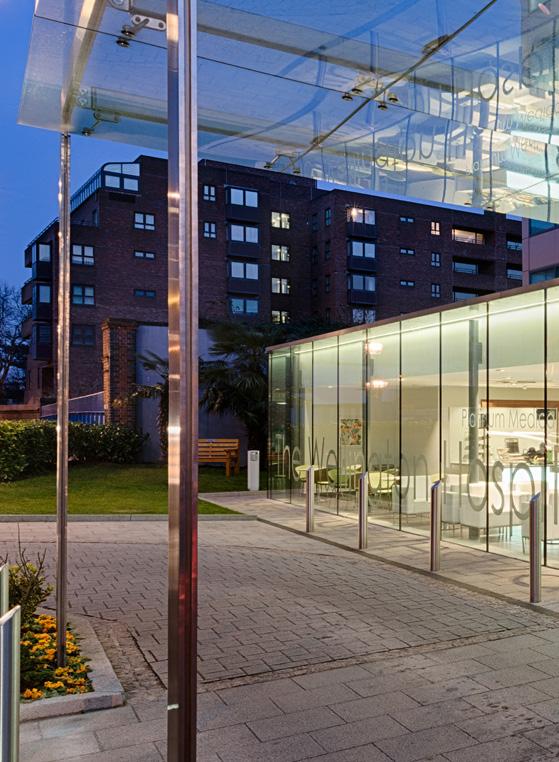
What were the biggest issues to conquer? Safety and capacity: because at the beginning, we didn’t know if it was going to be safe, or what our capacity would be, even in the private sector. So the priority was to ensure that we had established safe pathways to protect our patients.
How have some of your practices changed? We have just had to become more creative. We have done a lot more ‘tele’ medicine than face to face. We have had to utilise a strategy across London to ensure people who require timecritical care get their treatment quickly. The breast cancer patients whose diagnosis allowed us to treat them safely with medications had this first, while we worked out a clear strategy on safety and capacity. Once we had established safe pathways we were able to expand what we could do, and
re-established more complex treatment options, reconstructions, and lately more risk-reducing and symmetry surgery.
Have there been any positives to the changes in strategy? The efficient way of working together collaboratively over 10 NHS trusts was really great to see. I am sure The Wellington felt extremely proud of their own teams and the ability to be able to support the NHS effort through a clear national Covid response. It shone a light on the fact that breast care has always been an exemplar of multi-disciplinary teams coming together, but what it has shown is that we are able to work collegiately with neighbouring hospitals to support each other, ensuring patients are receiving the same quality of treatment across the board. We have demonstrated that across London, breast cancer care can be an equal experience. And we were able to achieve that because of the support and partnerships with both the HCA hospitals and London Bridge hospitals.
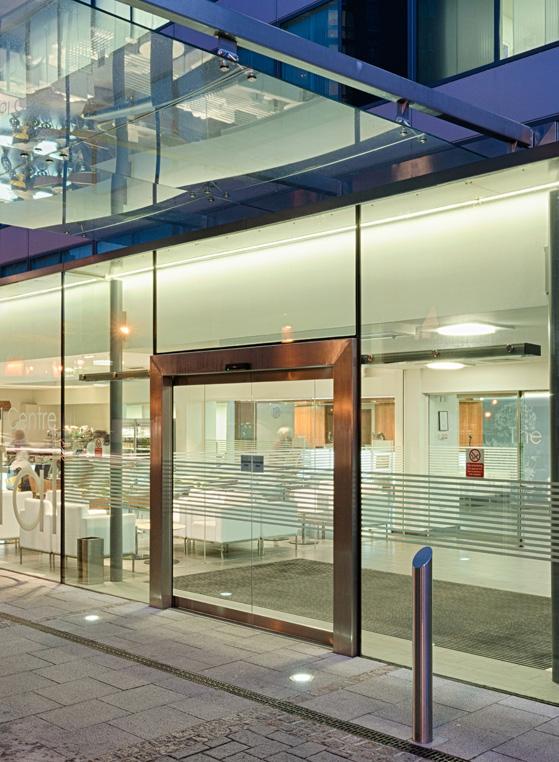
What message do you want to get out there to those who may experience breast cancer symptoms during a potential second wave or lockdown? Understandably, people didn’t initially want to come to hospital, even when they were sitting on breast cancer symptoms that were quite significant. So we would like to encourage people to come to all screening and symptomatic appointments, regardless of what is going on in the outside world. Those who come forward earlier have a better chance of a more positive prognosis. You must still see a GP or a specialist review if you find something that doesn’t look or feel right. Breast cancer is not just a physical experience for patients but emotionally challenging. Bernie Phelan (left), lead breast clinical nurse specialist at The Wellington, shares some advice...
‘My role is to help patients by providing ongoing support during every stage of their breast cancer journey, from the time of diagnosis to treatment, survivorship and beyond. The shock and influx of new information may cause patients to be distressed and struggle to comprehend what is being discussed. Many patients can find this thoroughly overwhelming. Upon meeting their clinical nurse specialist, patients and their families are offered emotional support and guidance, while being educated on their diagnosis and treatment options.
‘Treating breast cancer is not just about medical expertise. A holistic approach is required, which is where my role as a breast CNS comes in, through to taking care of the patient’s emotional and psychological well-being. Patients often have many questions and thoughts about their diagnosis so having someone who can listen and help them to formulate a plan is very important.
‘It is vital for patients to remember that you do not have to face the challenges of breast cancer alone. A breast CNS is an impartial figure to whom patients can express their emotional concerns without the worry of burdening loved ones. I also ensure patients are signposted to the amazing supportive services, such as the new Future Dreams House, Breast Cancer Now and Macmillan. Talking with other patients is also a good way to share feelings and experiences, as they will understand what you are going through.’
BREAST CANCER, SEX and you
RELATIONSHIPS CAN BE CHALLENGING AT THE BEST OF TIMES, BUT A BREAST CANCER DIAGNOSIS AND TREATMENT CAN BRING A WHOLE DIFFERENT SET OF ISSUES
It is perfectly normal to feel concerned, but the important thing is to talk, says Dr Claire Scanlan, a clinical psychologist at the Breast Cancer Haven...
Every intimate relationship is different. Individual sexual and romantic needs are unique, whether you are in a partnership, married or single. But once you factor in a breast cancer diagnosis and treatment it can become even more complicated.
Common issues range from loss of body confidence to fear of intimacy and worries that sex or a relationship will never be the same. It is not just an issue for women and men diagnosed with the illness – their partners are often concerned about behaving in the right way, too.
Dr Claire Scanlan (pictured above), a clinical psychologist at the Breast Cancer Haven, has helped many couples and individuals find a way to get their relationships and selfconfidence back on track. She works individually with women with breast cancer as well as with their partners or with couples together.
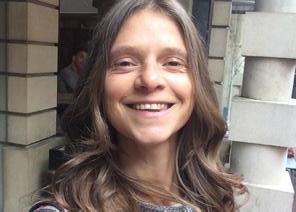
‘Breast cancer will exacerbate any pre-existing difficulties in a relationship or that you may have in general,’ says Claire. ‘It shines a spotlight so it is important to talk about them. It is not my job to give advice per se but to help people explore how they feel and the challenges that they are facing.’
Here Claire explores some of the most common relationship issues she has encountered in her work...

1Body image Scarring from a mastectomy or lumpectomy can have a very negative impact on some women, who may feel that having breast cancer is an assault on their sexuality and their femininity. Some say it makes them feel less of a woman and can make them very selfconscious about wearing swimsuits and low-cut dresses, for example.
They may feel a sense of loss over their pre-cancer body. We may talk about using mindfulness techniques, such as acceptance, which is based around learning to accept the things that we cannot change rather than being stuck in the cycle of despair about not liking the new way you look.

Helping them find a way to accept their new normal is important – befriending their new body, acknowledging it and familiarising themselves with it and the fact that it is different.
I would encourage them to become comfortable with the way it looks and feels in a way that is safe to them. It is really important that this is done in a gradual and appropriate way, for example by encouraging them to look at and then touch their new body. It is perfectly normal to feel the way they do and it’s very important for women to know this and realise they are not alone.
For some women it is a real revelation that other people feel the same way they do. It is also important to manage their expectations. They have been through a lot and in the early days it is a huge thing to come to terms with. They may feel they have multiples losses on multiple levels.
I was working with one lady who was worried about a work event, talking about how unfeminine and unsexy she felt alongside other women in their plunging necklines. I asked her if she had felt like this before. After thinking about it, she realised she had always felt other women had better bodies or were more beautiful than her.
She was attributing the way she felt totally to the cancer. The cancer had magnified it but her lack of body and self-confidence was already there. 2 Getting physically intimate Issues here can range from not feeling sexy, to problems with lubrication and vaginal dryness due to early menopause. Or it may be that your partner feels scared to touch you as they once did.
Physical and emotional issues are not entirely different things – they are very much interlinked and I would not treat them separately. I always encourage people to communicate and be open with their partners. Fear of, or anxiety around, intimacy is not just an issue for the person who has the cancer but for their partner as well, who is often worried about saying or doing the wrong thing.
They may be concerned about coming across as insensitive if they initiate, or don’t initiate, sexual contact. They can often be scared of causing pain or harm to their partner and if it’s not talked about openly, it can become the elephant in the room.
Some women will say, ‘I still have my libido but my partner is scared to touch me.’ Others don’t want their partner to come near them or let them see them naked. Communication and dialogue about this is vitally important but it has to be done in a safe place and at a safe time, for example not when you are in bed or when someone feels vulnerable.
By talking, you can explore how you both feel and what you might be able to try. You may also discover different ways of sharing intimacy or making yourself or each other feel good. It needs to be an unpressurised time –
not mid-way through a film, cooking the dinner or as someone is leaving the house. It is important to name the problem and be honest about how you feel.
In new relationships, breast cancer and issues related to it can feel a big thing to address and it can really play on people’s minds. There is a fear it might put people off. There is also the dilemma of when you bring it up – if you don’t do it early on when you meet someone it can become a big thing, both for you and potentially for them. The right time and way differs from person to person.
There is no right or wrong way. Whether you choose to do it on date one or date six – the most important thing is to do it at a time that feels most comfortable for you. 3 Early menopause There’s no getting away from it – especially for women who are diagnosed with breast cancer when they are young – this is a difficult issue. Many have lost what they hoped was in their future with an early menopause and maybe the inability to have children without surrogacy or egg donation. Some people are happy to consider adoption and others think it is not something for them.
There can be lots of decisions to make in a short space of time. Will they want to freeze their eggs before treatment begins, for example. Again, there is a lot to talk to partners about – both the emotional and physical changes, such as vaginal dryness or hot flushes, both of which can affect your relationship and how you feel about yourself. Speaking to a therapist about it can help you find ways to manage these challenges.
4
Taking your emotions out on your partner
Communicate, communicate, communicate. Acknowledge if you feel that you are taking it out on your partner. Say so, but tell them why. Is it because you are scared, feeling overwhelmed, exhausted or lost? Is it the medication or, most likely, all of these combined? Is there anything your partner can do to help? Breast cancer diagnosis and treatment is very intense, even more so during lockdown, and it can become a melting pot of emotions.
If you feel that your partner is being too gentle with you tell them you are still the same person, and are not necessarily more fragile. If you feel they are being selfish or not meeting your needs, then say so.
Bottle up any emotions – be it frustrations, fears or sadness – and they will build up and eventually come out
sideways. Often in a less contained and considered way and often at a less than ideal time.
That huge row about the spaghetti not being cooked properly may have stemmed from this, rather than dealing with the real issue.
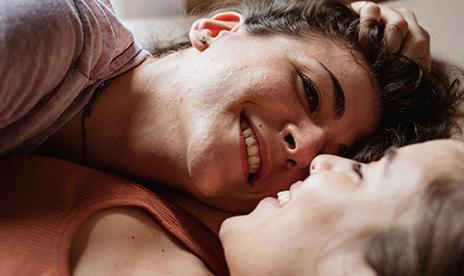
5
Make or break
Breast cancer makes some couples value each other more, but it can be a time when you realise that you are perhaps not happy in a relationship and you want change.
Breast cancer can give women an opportunity to re-evaluate their lives and realise what is important to them. Some feel they are not spending as much time with their family as they would like, or that they hate their job.
It can be a real opportunity – it is an enforced punctuation in life and so has the potential to be a good time to re-evaluate what you want and to challenge and change things if you are not happy with the way things are.
Don’t feel that you need to ‘get back to normal’ if your normal wasn’t making you happy. Perhaps it’s time to create a new normal.
Breast cancer can provide a rare opportunity to re-evaluate things – many people have a level of dissatisfaction in their lives that they never normally address. This can be an opportunity to do exactly that.
6
Feelings of loneliness and isolation during Covid-19
There are many similarities between the general public’s reaction and feelings towards Covid-19 and some of the reactions to a breast cancer diagnosis. People struggling with
the uncertainty are unable to see family and friends or do the things they love to do. They feel a loss of control. ‘Welcome to my world,’ is an understandable reaction from many women who have experienced breast cancer. For others it may reignite how they felt when they were diagnosed and undergoing treatment. If this is the case, it’s important to talk about it.
Breast Cancer Haven provides counselling and advice on these and other matters, as does Breast Cancer Now. Hover your phone camera over these QR codes and tap for more. SCAN HERE FOR COUNCILING AND ADVICE ONLINE
Breast Cancer Haven helpline
Breast Cancer Now helpline
